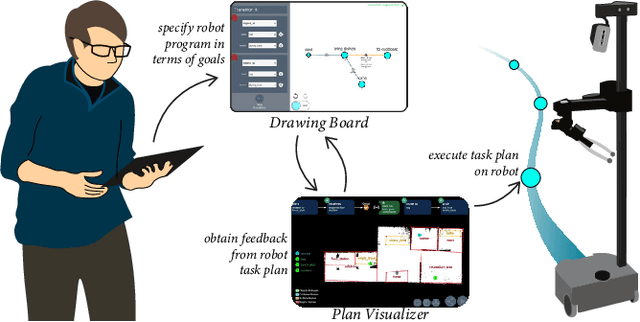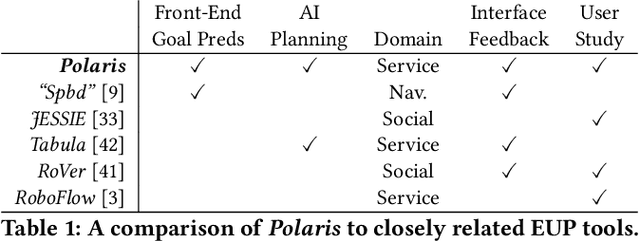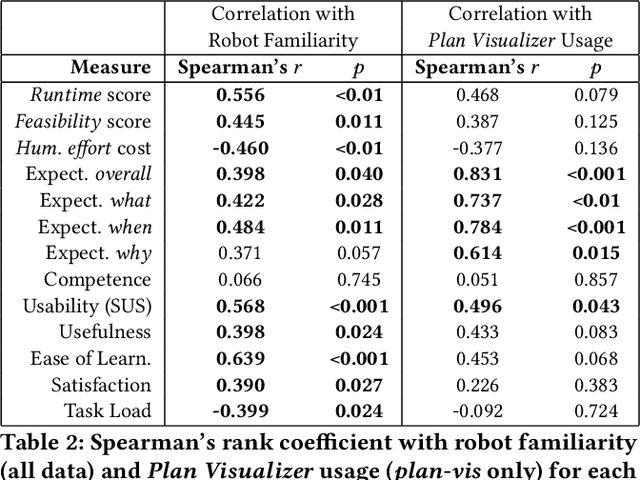Goal-Oriented End-User Programming of Robots
Paper and Code
Mar 20, 2024



End-user programming (EUP) tools must balance user control with the robot's ability to plan and act autonomously. Many existing task-oriented EUP tools enforce a specific level of control, e.g., by requiring that users hand-craft detailed sequences of actions, rather than offering users the flexibility to choose the level of task detail they wish to express. We thereby created a novel EUP system, Polaris, that in contrast to most existing EUP tools, uses goal predicates as the fundamental building block of programs. Users can thereby express high-level robot objectives or lower-level checkpoints at their choosing, while an off-the-shelf task planner fills in any remaining program detail. To ensure that goal-specified programs adhere to user expectations of robot behavior, Polaris is equipped with a Plan Visualizer that exposes the planner's output to the user before runtime. In what follows, we describe our design of Polaris and its evaluation with 32 human participants. Our results support the Plan Visualizer's ability to help users craft higher-quality programs. Furthermore, there are strong associations between user perception of the robot and Plan Visualizer usage, and evidence that robot familiarity has a key role in shaping user experience.
 Add to Chrome
Add to Chrome Add to Firefox
Add to Firefox Add to Edge
Add to Edge